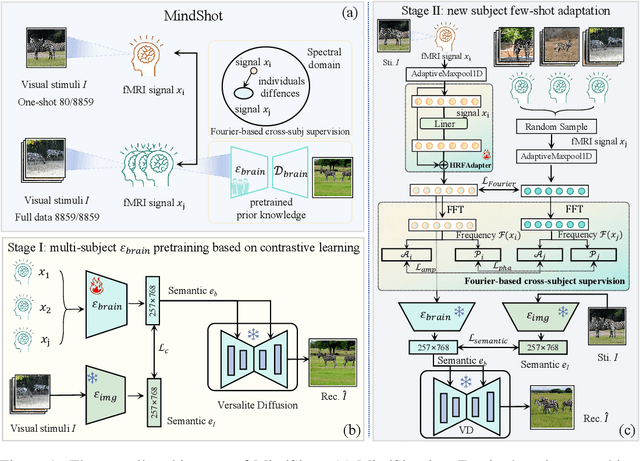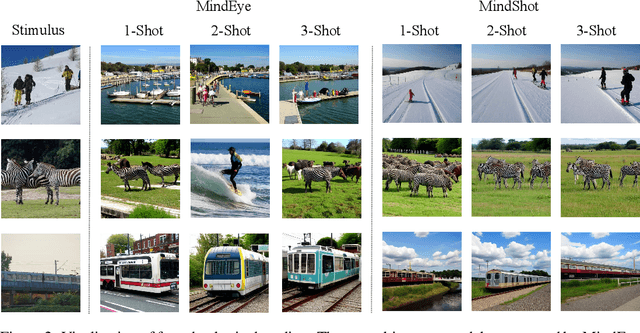MindShot: Brain Decoding Framework Using Only One Image
Paper and Code
May 24, 2024



Brain decoding, which aims at reconstructing visual stimuli from brain signals, primarily utilizing functional magnetic resonance imaging (fMRI), has recently made positive progress. However, it is impeded by significant challenges such as the difficulty of acquiring fMRI-image pairs and the variability of individuals, etc. Most methods have to adopt the per-subject-per-model paradigm, greatly limiting their applications. To alleviate this problem, we introduce a new and meaningful task, few-shot brain decoding, while it will face two inherent difficulties: 1) the scarcity of fMRI-image pairs and the noisy signals can easily lead to overfitting; 2) the inadequate guidance complicates the training of a robust encoder. Therefore, a novel framework named MindShot, is proposed to achieve effective few-shot brain decoding by leveraging cross-subject prior knowledge. Firstly, inspired by the hemodynamic response function (HRF), the HRF adapter is applied to eliminate unexplainable cognitive differences between subjects with small trainable parameters. Secondly, a Fourier-based cross-subject supervision method is presented to extract additional high-level and low-level biological guidance information from signals of other subjects. Under the MindShot, new subjects and pretrained individuals only need to view images of the same semantic class, significantly expanding the model's applicability. Experimental results demonstrate MindShot's ability of reconstructing semantically faithful images in few-shot scenarios and outperforms methods based on the per-subject-per-model paradigm. The promising results of the proposed method not only validate the feasibility of few-shot brain decoding but also provide the possibility for the learning of large models under the condition of reducing data dependence.
 Add to Chrome
Add to Chrome Add to Firefox
Add to Firefox Add to Edge
Add to Edge